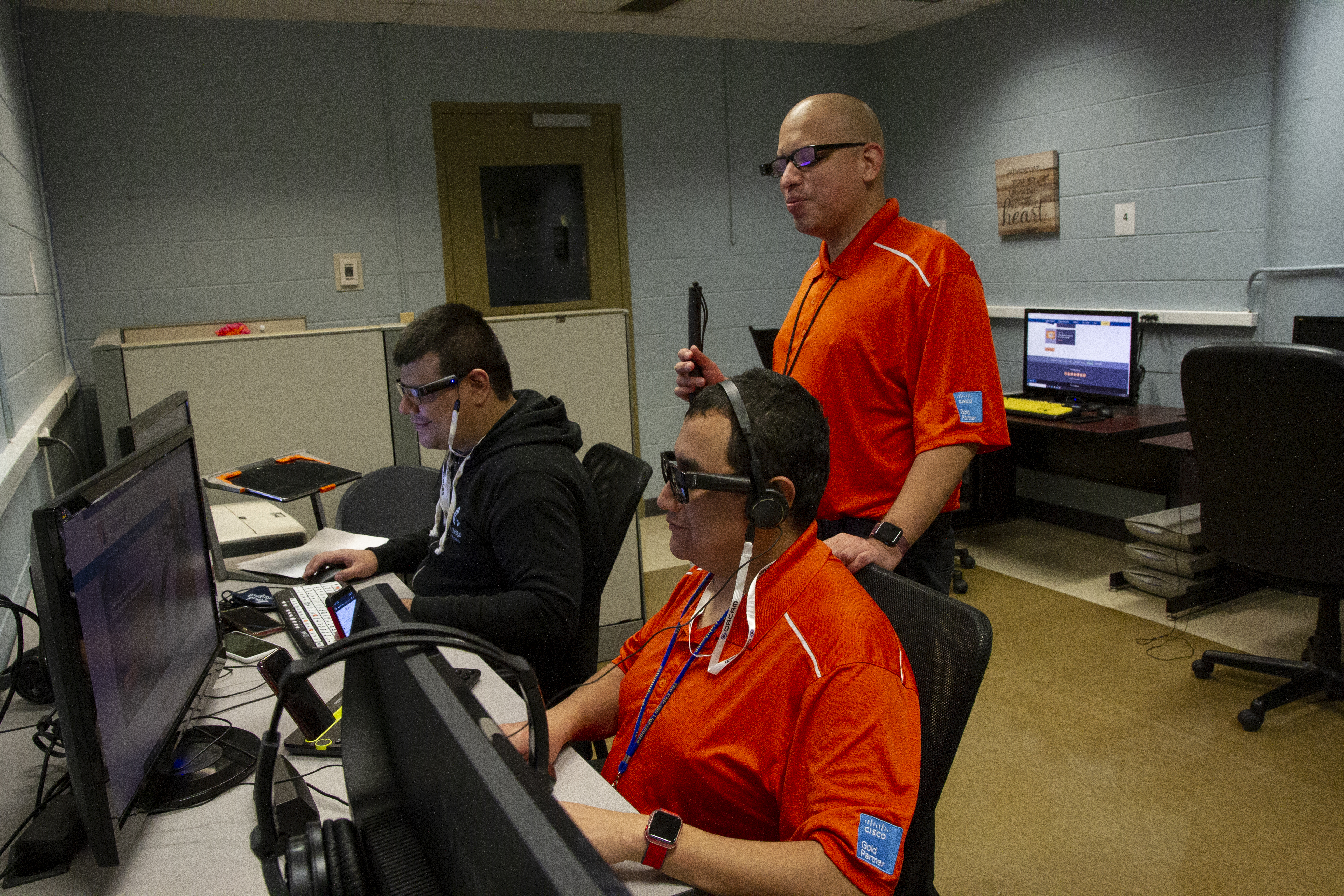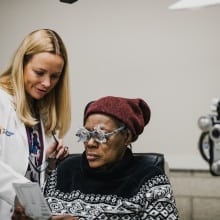Coffee with Kalari: What is the Online Accessibility Act?
This article is part of a weekly series written by Kalari, a writer, athlete, mother and employee of The Chicago Lighthouse who is visually impaired. She shares her perspective on a variety of topics in order to build community.

Online accessibility has been a major issue for individuals who are blind, and it has appeared to have increased under the pandemic. This year since the pandemic has started, more than 2000 cases have been brought against companies concerning accessibility. These are the primary reasons why a bill was introduced to address this growing issue of online accessibility. The Online Accessibility Act is a bipartisan bill that provides steps for both the company and the consumer for getting a company to comply with having more accessible websites or apps. Under this law, it would be harder for consumers to present legal cases as they would have to go through more steps to file legal action.
Even though this bill sounds good on the surface, the bill has many opponents. Many disability rights lawyers argue that the ADA has provisions for online accessibility, so this law would be a waste of resources. It is also argued that because there are more steps a consumer must take before legal action; this takes the power away from the consumer. After an initial complaint is made, the company has 90 days to bring their website and/or app to compliance. If they do not comply within 90 days, the individual may file a complaint with the Department of Justice (DOJ), which has 180 days to determine whether a violation exists. Many critics say this is too long of a timeline, which takes power away from the consumer and thus providing more protection for the business.
I am happy that this issue is getting addressed. I have been so frustrated when I find out a website or app is not accessible. I have been in situations where I cannot complete my order online or access a certain portion of a site. I am happy that bills on accessibility are getting introduced in Congress. This is especially important now during the pandemic, as ordering online has become the norm. I would love for more websites to be accessible. It would make my life so much easier.
I do, however, agree with the critics of this bill that power is being taken away from the consumer. Under this bill, realistically, companies will have ample time to make their website more updated. It will take longer for change to happen, but at least it is being talked about. People are seeing that inaccessibility is a major issue, and I am happy that more companies are being held accountable.
Here at The Chicago Lighthouse, we are leading the charge on accessibility. Our Digital Accessible Experience team is ahead of the curve with assisting companies on enhancing the accessibility of their websites and apps. This program is helping to create a more inclusive world for all.

Our Digital Accessible Experience team, led by IT professionals who are blind, helps businesses to enhance the accessibility of their websites and apps.
Have you had issues with accessing different websites or apps? What are your solutions to get around inaccessibility? I would love to hear your experiences!





